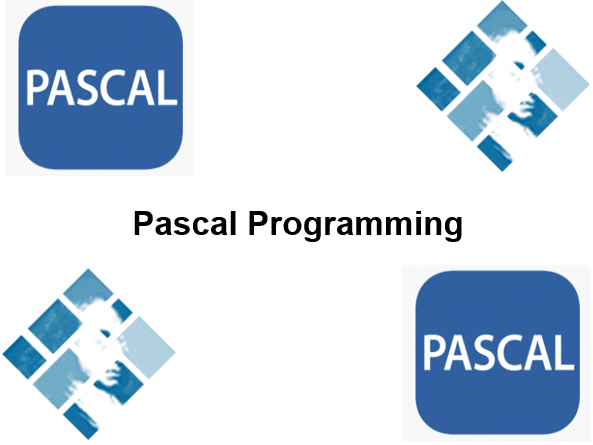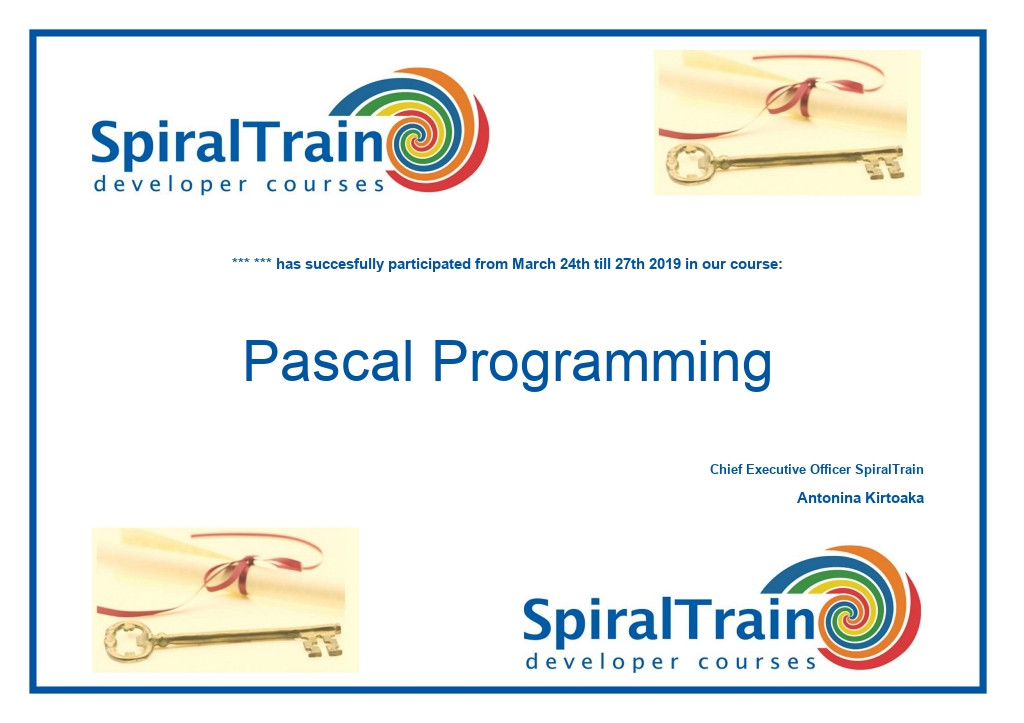-
Learning by doing
-
Trainers with practical experience
-
Classroom training
-
Detailed course material
-
Clear content description
-
Tailormade content possible
-
Training that proceeds
-
Small groups
In the Pascal Programming course from SpiralTrain participants learn the generally applicable and original procedural language Pascal for developing reliable and efficient applications. Pascal was created in the early 1970s with the aim of teaching programming as a systematic discipline. Pascal is based on the Algol language and has gained a lot of following in academic circles. Pascal also supports object-oriented programming and the GUI Framework Delphi is based on Pascal.
The course starts with an overview of the program structure of Pascal, the coding style, the division into Units and the Scope rules in Pascal. Attention is also paid to compiler directives, conditional defines and include files.
Next the language syntax of Pascal is discussed with variables, standard data types and control flow constructs such as if clauses and for loops. User Defined Types, Enumerated Types and Exception Handling are also treated.
Special attention is paid to procedures and functions in Pascal. The definition and invocation of procedures is explained as well as the passing of different types of parameters such as reference, default and constant parameters. Also recursive functions and function overloading are treated.
Then it's time to consider arrays and records in Pascal. With regard to arrays, array indexing, array boundaries and static and dynamic arrays are explained and with regard to records Record Data Types, Variant Records and Records with Methods and Constructors are discussed.
Classes and Objects in Pascal are also part of the program of the course. The Pascal implementation of object oriented concepts such as encapsulation, inheritance, polymorphism and abstract classes is treated.
Finally the course ends with the explanation of parameterized types, also known as generics. Generic constraints, generic results and also smart pointers are part of the subject matter.
The course Pascal Programming is intended for anyone who wants to learn programming in the programming language Pascal.
To participate in this course basic knowledge of programming in another programming language is beneficial to the understanding but is not required.
The theory is discussed on the basis of presentation slides. The theory is further explained through demos. After discussing a module there is the possibility to practice. Course times are from 9.30 to 16.30.
After successful completion of the course participants receive an official certificate Pascal Programming.

Module 1 : Pascal Intro |
Module 2 : Language Syntax |
Module 3 : Procedures and Functions |
|
Pascal Origins Program Structure Unit Names Program Names Units and Scope Installing Pascal Compiler Directives Conditional Defines Include Files Coding Style Indentation White Space Symbolic Identifiers |
Variable Assignments Lifetime and Visibility Global Variables Numeric Types Strings and Characters Floating Points User Defined Types Enumerated Types Expressions and Operators Type Conversions If and Case For and While Exception Handling |
Forward Declarations Methods Parameter Passing Reference Parameters Constant Parameters Function Overloading Default Parameters Recursive Functions Inlining Procedural Types Return Values External Declarations Ambiguous Calls |
Module 4 : Arrays and Records |
Module 5 : Classes and Objects |
Module 6 : Generics |
|
Array Data Types Static Arrays Array Size Array Boundaries Dynamic Arrays Array Indexing Record Data Types Variant Records Fields Alignment Records with Methods Records and Constructors |
Class Definition Creating Objects Private, Protected, Public Class Methods Encapsulation Self Keyword Constructors Inheritance Polymorphism Abstract Classes Interfaces |
Parameterized Types Generic Type Rules Generic Constraints Class Constraints Interface Constraints Generic Containers Object Containers Anonymous Methods Generic Dictionaries Smart Pointers Generic Results |
